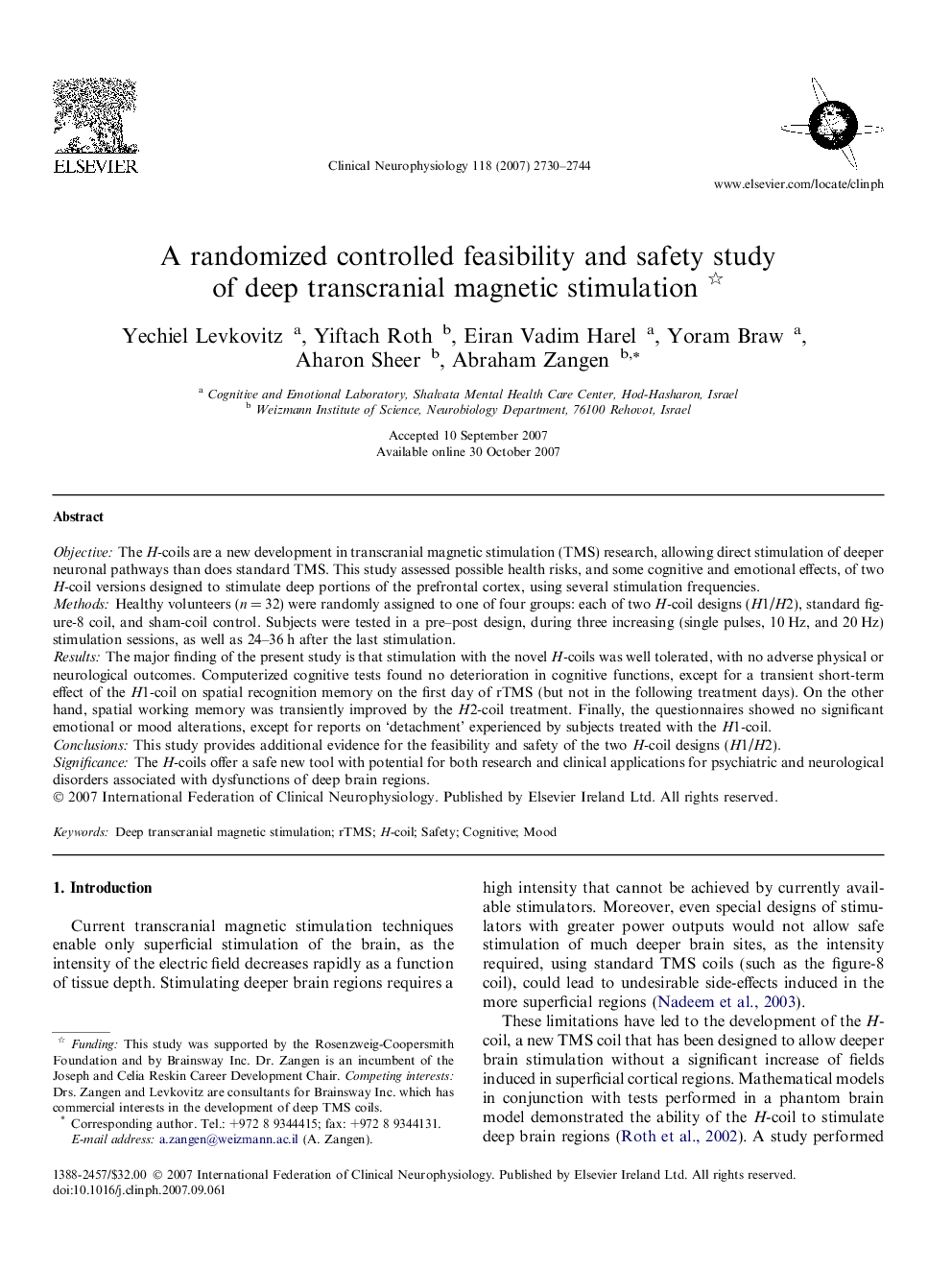| Article ID | Journal | Published Year | Pages | File Type |
|---|---|---|---|---|
| 3047234 | Clinical Neurophysiology | 2007 | 15 Pages |
ObjectiveThe H-coils are a new development in transcranial magnetic stimulation (TMS) research, allowing direct stimulation of deeper neuronal pathways than does standard TMS. This study assessed possible health risks, and some cognitive and emotional effects, of two H-coil versions designed to stimulate deep portions of the prefrontal cortex, using several stimulation frequencies.MethodsHealthy volunteers (n = 32) were randomly assigned to one of four groups: each of two H-coil designs (H1/H2), standard figure-8 coil, and sham-coil control. Subjects were tested in a pre–post design, during three increasing (single pulses, 10 Hz, and 20 Hz) stimulation sessions, as well as 24–36 h after the last stimulation.ResultsThe major finding of the present study is that stimulation with the novel H-coils was well tolerated, with no adverse physical or neurological outcomes. Computerized cognitive tests found no deterioration in cognitive functions, except for a transient short-term effect of the H1-coil on spatial recognition memory on the first day of rTMS (but not in the following treatment days). On the other hand, spatial working memory was transiently improved by the H2-coil treatment. Finally, the questionnaires showed no significant emotional or mood alterations, except for reports on ‘detachment’ experienced by subjects treated with the H1-coil.ConclusionsThis study provides additional evidence for the feasibility and safety of the two H-coil designs (H1/H2).SignificanceThe H-coils offer a safe new tool with potential for both research and clinical applications for psychiatric and neurological disorders associated with dysfunctions of deep brain regions.
